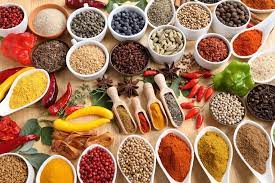Increase in demand for immunity-boosting spices
The global COVID-19 pandemic motivated consumers to buy food and drinks that support their immune systems. Ingredients such as vitamin C, D, zinc, probiotics and functional foods are being used more often in product formulations. The demand for spices with health benefits, such as ginger, turmeric or garlic, is increasing. Ginger and turmeric are now ingredients in an increasing number of products.
Consumers want to support their immune systems
Mintel reports that the COVID-19 outbreak caused 45% of consumers in Europe to add more nutrients to their diet. Also, since the start of the pandemic, 29% reported being more interested in foods that support your immune system. Besides ingredients like vitamin C or zinc, consumers are looking for natural ingredients, including spices and herbs. These are sometimes called botanicals. For example, 51% of UK adults agree that botanical ingredients can have medicinal benefits. And 17% of Spanish consumers have shown more interest in learning about medicinal plant ingredients since the start of the pandemic.
Among spices and herbs, the leaders are ginger, turmeric and garlic. Import values of these spices significantly increased in 2020 compared to 2019. For example, the import value of ginger in the Netherlands, which is Europe’s largest importer, was €125 million higher in 2020 compared to 2019 (figure 1). The import of turmeric and garlic also significantly increased. Data for the first half of 2021 shows that this increase will continue in 2021, too.
Next to health benefits, consumers looked for joyful experiences during the pandemic as a release from stress. Innova Market Insights reports that during the lockdowns, consumers started creating treats with health in mind. Sweet spice combinations such as ginger and cinnamon were popular.
Figure 1: Import of ginger in the Netherlands in thousands of euros

Source: ITC Trade Map
New ways to use spices
Typical uses of spices such as turmeric or ginger only involve simple processing, such as drying and cutting, before export. Now, companies process those spices in other ways too. For example, curcumin is extracted from turmeric. More and more often, consumers take curcumin as a herbal supplement. After investing in curcumin extraction facilities and laboratories, India is now responsible for more than 80% of global production. Curcumin is also widely used as a food supplement with other ingredients like black pepper or black pepper compound piperine.
Figure 2: Examples of turmeric extract available on the European market

Source: Ocado Source: Holland & Barrett
Many companies use turmeric and ginger in juices and extracts. Both spices are functional ingredients in drinks. In juices, ginger has become a trendy ingredient. This is due to its positive health image and the spicy sensation you get when you drink it. An important development connected to juice functionality is the rising popularity of juice shots. These are juices with functional ingredients and vitamins. They usually come in small bottles containing about 100ml of juice. Some brands have specifically made shots with ingredients that support the immune system. For example, the UK brand Plenish created ‘Ginger immunity’ and ‘Turmeric Defence’ shots.
Figure 3: Examples of juice shots available on the European market

Source: Rewe Source: Plenish



